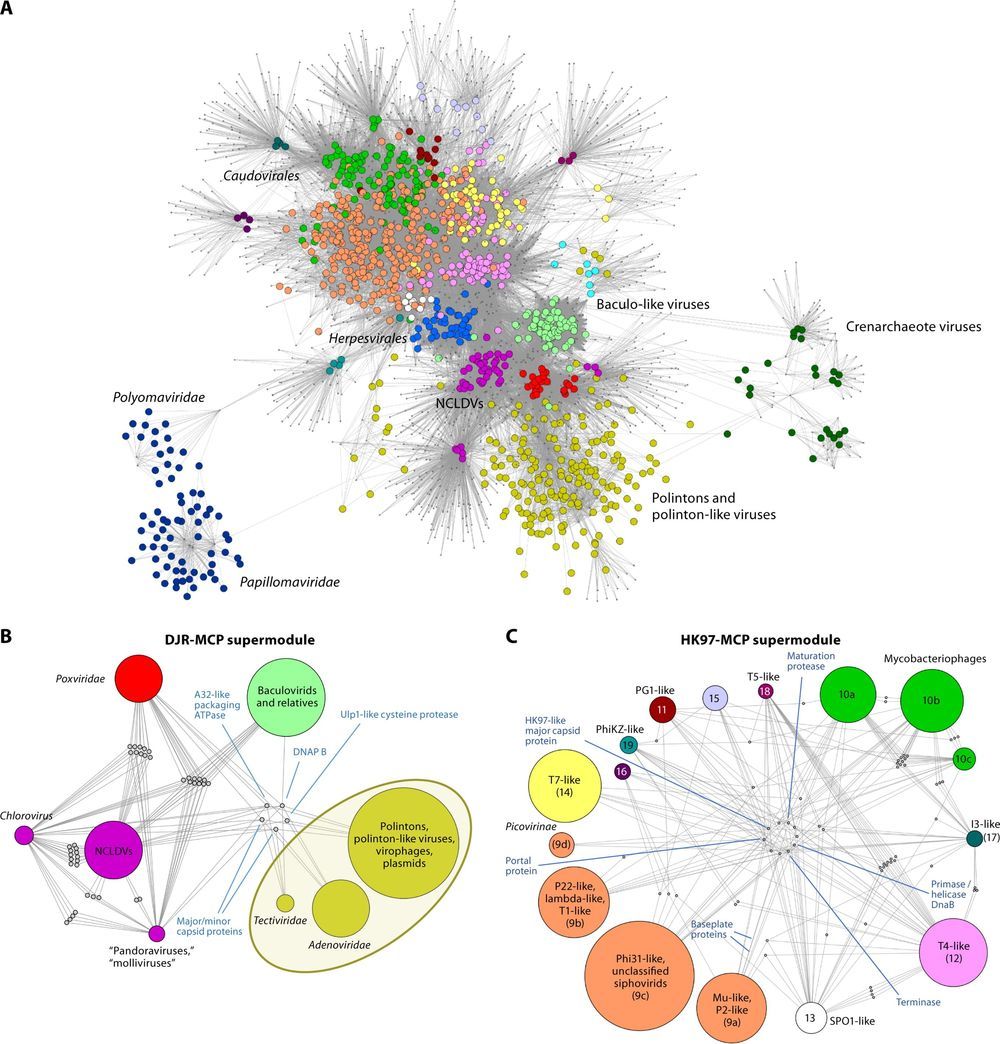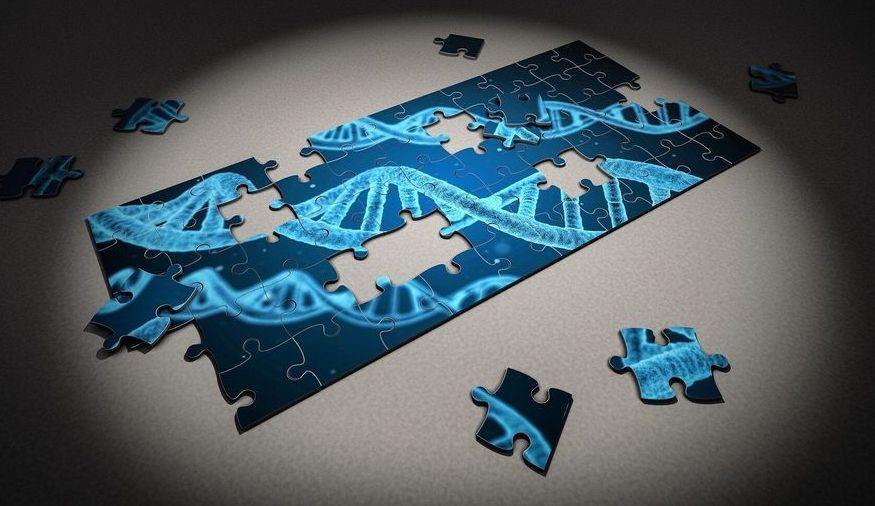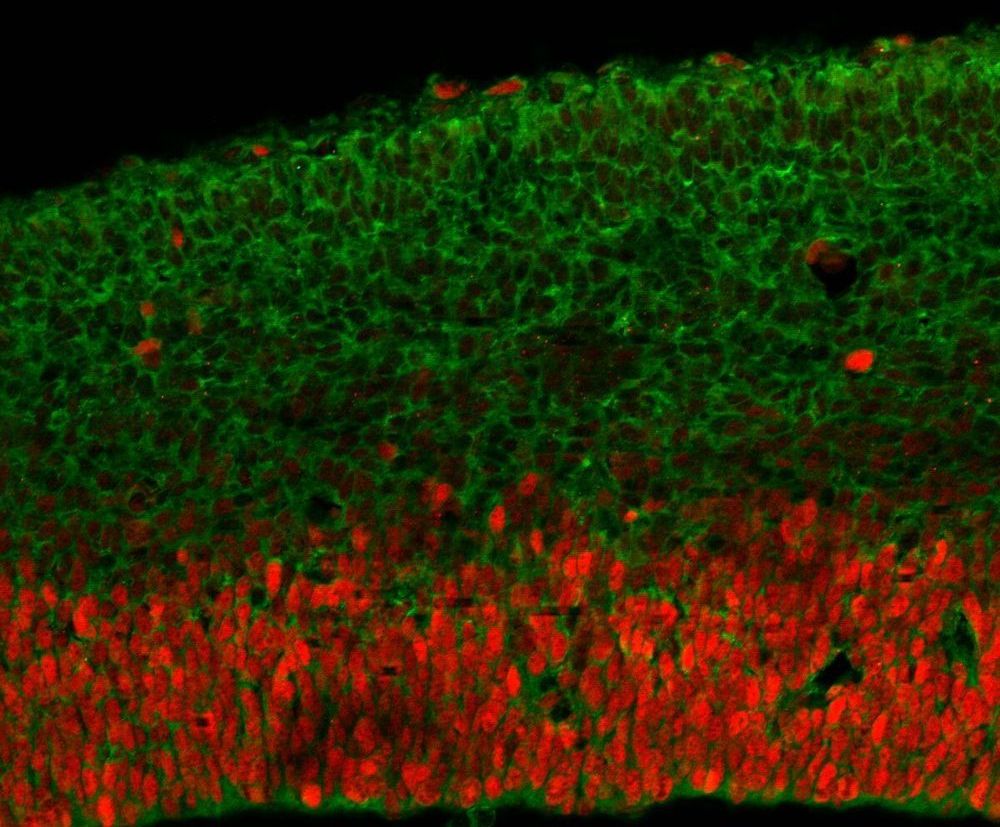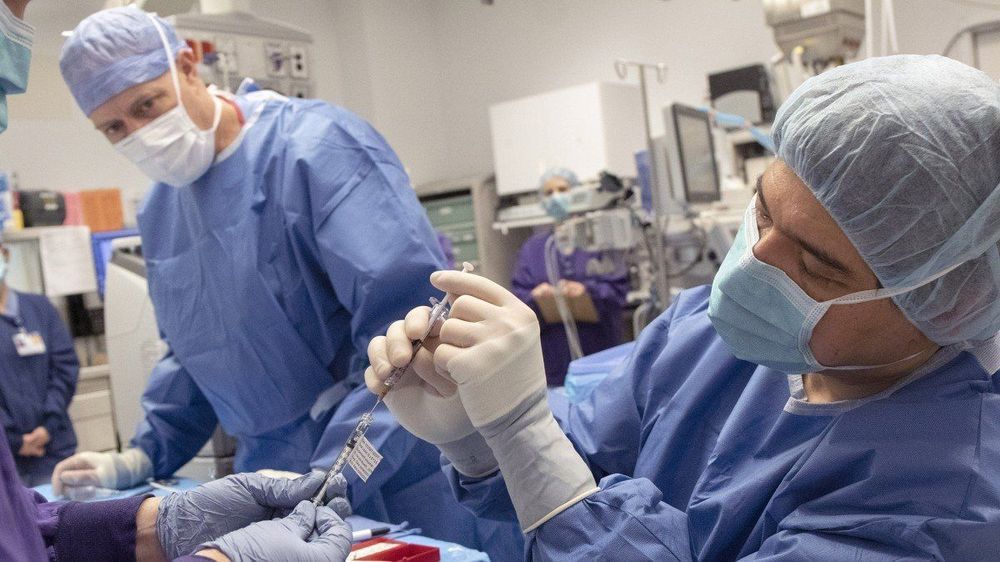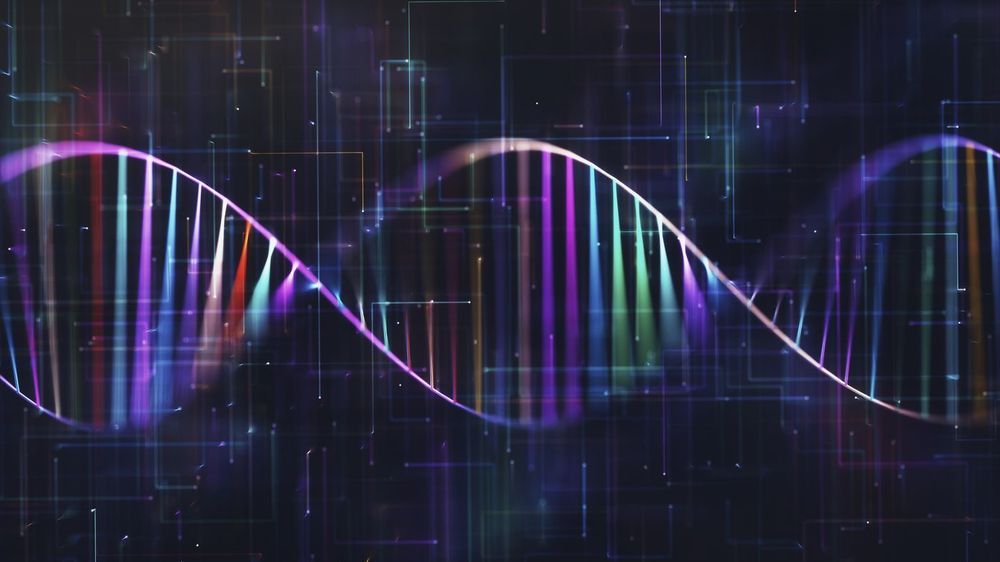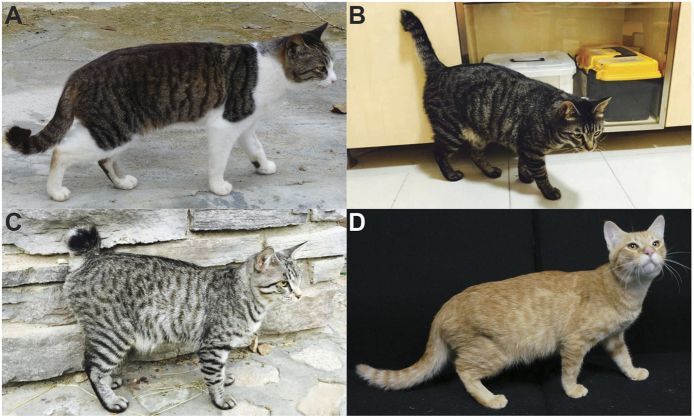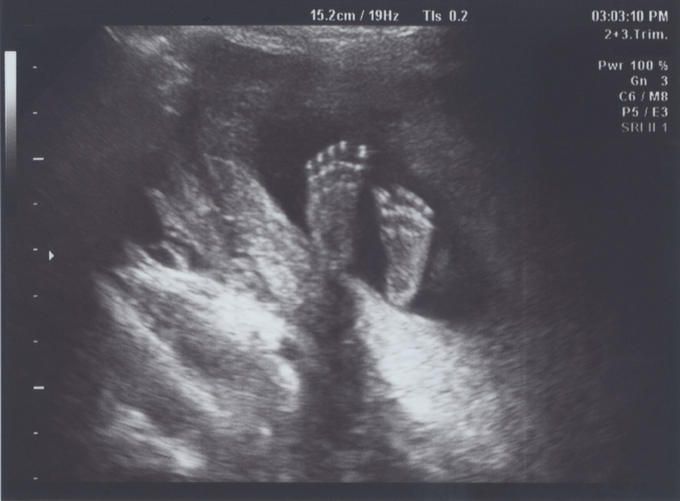Mar 5, 2020
Global Organization and Proposed Megataxonomy of the Virus World
Posted by Genevieve Klien in categories: biotech/medical, genetics
Viruses and mobile genetic elements are molecular parasites or symbionts that coevolve with nearly all forms of cellular life. The route of virus replication and protein expression is determined by the viral genome type. Comparison of these routes led to the classification of viruses into seven “Baltimore classes” (BCs) that define the major features of virus reproduction. However, recent phylogenomic studies identified multiple evolutionary connections among viruses within each of the BCs as well as between different classes. Due to the modular organization of virus genomes, these relationships defy simple representation as lines of descent but rather form complex networks. Phylogenetic analyses of virus hallmark genes combined with analyses of gene-sharing networks show that replication modules of five BCs (three classes of RNA viruses and two classes of reverse-transcribing viruses) evolved from a common ancestor that encoded an RNA-directed RNA polymerase or a reverse transcriptase. Bona fide viruses evolved from this ancestor on multiple, independent occasions via the recruitment of distinct cellular proteins as capsid subunits and other structural components of virions. The single-stranded DNA (ssDNA) viruses are a polyphyletic class, with different groups evolving by recombination between rolling-circle-replicating plasmids, which contributed the replication protein, and positive-sense RNA viruses, which contributed the capsid protein. The double-stranded DNA (dsDNA) viruses are distributed among several large monophyletic groups and arose via the combination of distinct structural modules with equally diverse replication modules. Phylogenomic analyses reveal the finer structure of evolutionary connections among RNA viruses and reverse-transcribing viruses, ssDNA viruses, and large subsets of dsDNA viruses. Taken together, these analyses allow us to outline the global organization of the virus world. Here, we describe the key aspects of this organization and propose a comprehensive hierarchical taxonomy of viruses.
